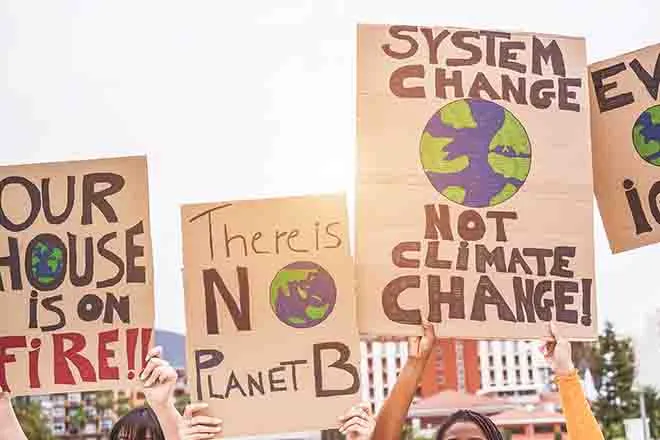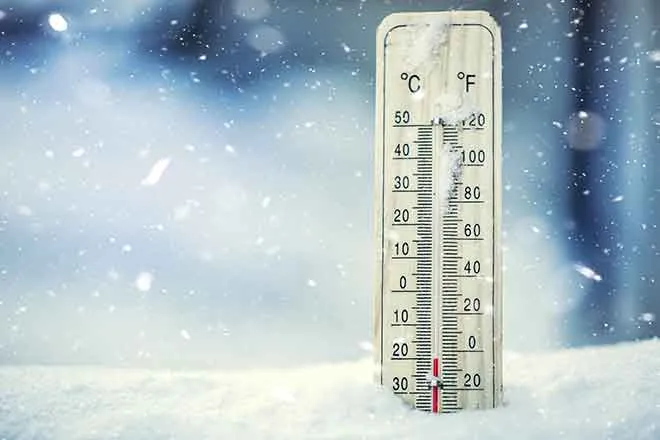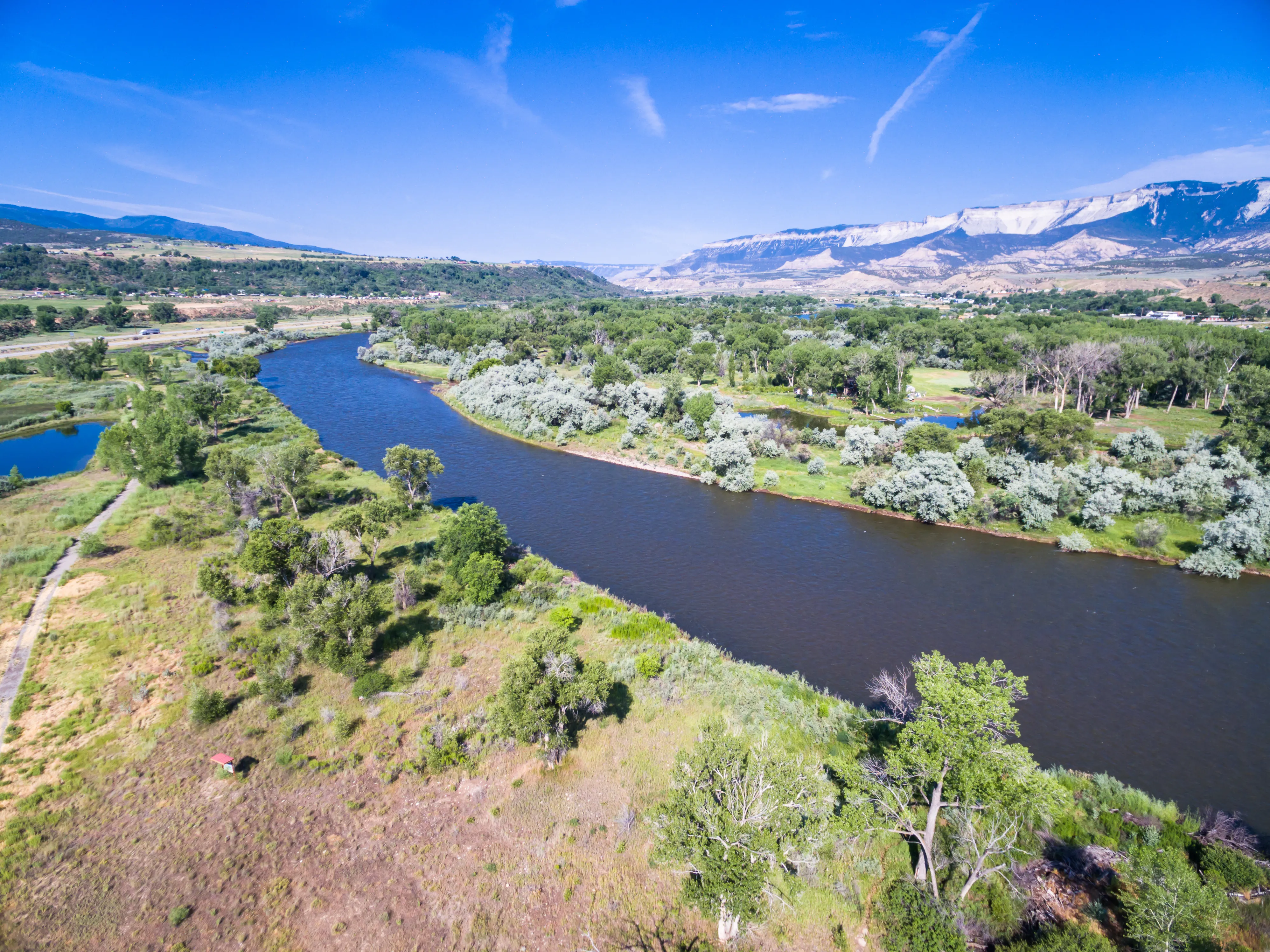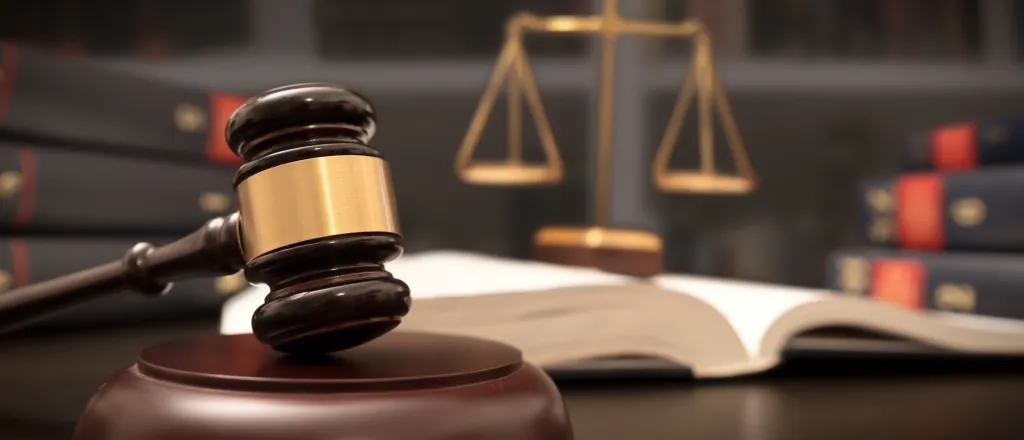
Boulder’s camping ban lawsuit jeopardized after Supreme Court ruling on similar case
This story originally appeared in Boulder Reporting Lab.
(Colorado Newsline) A high-profile lawsuit challenging the city of Boulder’s camping ban is likely to be dismissed after the U.S. Supreme Court recently ruled that a similar ordinance in Grants Pass, Oregon, did not violate the U.S. Constitution’s prohibition on cruel and unusual punishment.
The June 28 ruling from the nation’s highest court allows cities to ticket homeless people for sleeping in public spaces. The ruling is likely to have significant implications for how cities across the country, including Boulder, address encampments in public spaces amid rising homelessness.
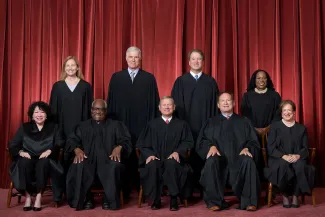
Memebers of the Supreme Court of the United States 2022 - WIkimedia - Public Domain
The local lawsuit in Boulder was filed by the ACLU of Colorado in May 2022 on behalf of several homeless people and a local nonprofit, Feet Forward. It alleged that the city violated protections against cruel and unusual punishment in the Colorado Constitution by issuing citations to homeless people when they had nowhere else to sleep but in public spaces, among other allegations. The lawsuit seeks to halt enforcement of the city’s camping ban when shelter spaces is not accessible.
The debate over homeless encampments in Boulder has intensified since the lawsuit was filed, as the number of people sleeping outside has risen in recent years, primarily due to high living costs and exacerbated by a lack of mental health and substance use treatment services locally and across the state. In November 2023, voters passed a ballot measureamending city code to make tents and propane tanks near schools, sidewalks or multi-use paths “subject to prioritized removal.” The ballot measure was a response to several fires likely caused by propane tank explosions near Boulder High School.
The lawsuit seeking to overturn Boulder’s campaign ban was scheduled for a trial in August 2024. But in April, the case was paused due to the pending U.S. Supreme Court ruling on the Grants Pass case. Boulder County District Court Judge Robert R. Gunning issued an order halting proceedings, stating that the ruling would provide important precedent and “hold tremendous weight” in shaping a ruling on the Boulder case.
The U.S. Supreme Court’s 6-to-3 ruling, split along ideological lines, sided with the City of Grants Pass. The Grants Pass lawsuit, Johnson v. City of Grants Pass, was filed in 2018 and alleges the city violated Eighth Amendment protections against cruel and unusual punishment by citing homeless people for sleeping in public spaces when they could not access shelter.
Much of the debate centered on whether homelessness is a state of being or a form of conduct and whether people can be punished for violating local ordinances that prohibit sleeping in public spaces.
Writing for the majority, Justice Neil Gorsuch argued that the court should not be deciding a “pressing social question like homelessness,” among other points.
“The Constitution’s Eighth Amendment serves many important functions, but it does not authorize federal judges to wrest those rights and responsibilities from the American people and in their place dictate this nation’s homelessness policy,” he wrote.
Justice Sonia Sotomayor wrote the dissenting opinion. She was joined by Justices Elena Kagan and Ketanji Brown Jackson.
“Sleep is a biological necessity, not a crime. For some people, sleeping outside is their only option,” Sotomayor wrote. She said the City of Grants Pass jails and fines people for sleeping in public spaces and their cars with as much as a “blanket to keep warm or a rolled-up shirt as a pillow.”
“That is unconscionable and unconstitutional,” she added.
The June 28 ruling by the Supreme Court does not guarantee that Gunning will dismiss the case in Boulder, though observers generally believe the case is now decided. The Boulder lawsuit is based on similar civil rights protections in the Colorado Constitution, not the U.S. Constitution.
“The City of Boulder will address the Grants Pass decision in our filings with the court in our own camping ban lawsuit,” Shannon Aulabaugh, a spokeswoman for the city of Boulder, told Boulder Reporting Lab.
Lawyers for the plaintiffs were unavailable to comment in time for publication. Deborah Richardson, executive director for ACLU of Colorado, said in a statement that addressing homelessness through tickets, arrests and incarceration is “inhumane and ineffectual.”
“Make no mistake: this ruling is not the end of our efforts,” Richardson said. “We will remain steadfast in our advocacy for the rights of unhoused Colorado residents. We expect the Colorado courts to come to the correct conclusion under our state Constitution: jailing people for sleeping outside when they have no other choice is cruel and unusual punishment.”
The city of Boulder spends about $3 million per year clearing out encampments of homeless people and cleaning up public spaces. At least 171 people are experiencing homelessness in the city of Boulder, according to a point-in-time count by the city in July 2023. That number is likely higher, as people are oftenturned away from the city’s main shelter in North Boulder, which has a capacity of about 180.
Colorado Newsline is part of States Newsroom, a nonprofit news network supported by grants and a coalition of donors as a 501c(3) public charity. Colorado Newsline maintains editorial independence. Contact Editor Quentin Young for questions: info@coloradonewsline.com. Follow Colorado Newsline on Facebook and X.


